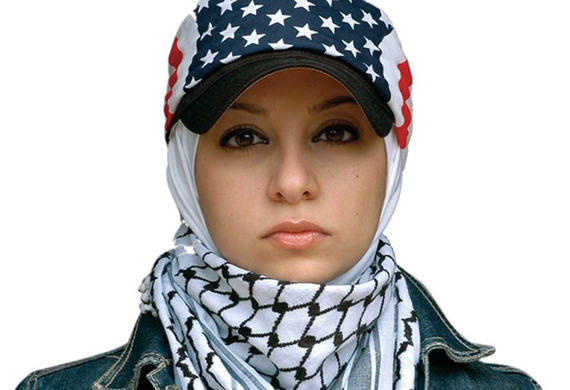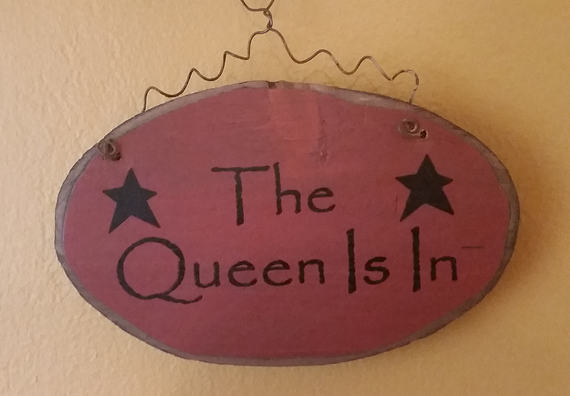Labels are used every day to describe people whether we are labeling ourselves or others.
We have a love / hate relationship with labels.
On one hand, we don't want to be defined by our labels. Take actress, Raven-Symone who recently told Oprah Winfrey in reference to her sexual orientation: "I don't want to be labeled gay. I want to be labeled a human who loves humans."
Adding about her nationality: "I'm tired of being labeled. I'm an American. I'm not an African-American. I'm an American."
And as predicted by Oprah, she received flak from people who thought she was abandoning her ethnic roots.
On the other hand, some choose to display their labels in large, flashy lights. Like Beyonce. At her August MTV, VMA performance -- chock full of pelvic thrusting and pole dancing and plenty of homage to and objectification of the human buttocks, the word 'feminist' in huge letters flashed behind her. But not every top music diva ascribes to the same labels. (After all, they are divas. They have minds of their own.) Madonna is famously known for saying: "I'm not a feminist. I'm a humanist."
Damned if you do. Damned if you don't.
In my HuffPost bio and in my last blog, "I'm a Muslim American Mom. And I'm Sorry," my self-labeling instantly told you my religious affiliation, my nationality and my primary Super Power -- all at once. Does this really describe who I am? Additional labels can be found in my bio: 'activist,' 'writer.' All of these labels are supposed to give you an idea of who I am and what I'm about. They are also an expression of how I see myself.
As with Raven-Symone, people will always give you flak. Like this reader who commented on my last article.
Anila has called me out for labeling myself Muslim American instead of American Muslim. (And she is the winner of my social experiment. *Queue stock applause and cheers.*)
Am I more or less Muslim or American depending on the order of my labels?
Yes. I am.

Photo Credit: Sadaf Syed, Award Winning Photographer and Author of the book, iCover: The Day in the Life of a Muslim-American COVERed Girl
Hattaway Communications, an organization that helps visionary leaders and organizations achieve their goals, did a comprehensive study on how Americans view Muslims. They even published a manual to help Muslims and Muslim activists communicate effectively called, Talking to America about American Muslims Manual. In it they state:
Perceptions of American Muslims are more negative than perceptions of other religious groups, or of other minority groups in America. This negativity is driven by multiple factors. Only four in ten Americans know a Muslim personally, and most Americans acknowledge that they know little about Islam. Lacking personal knowledge or experience with Muslims, opinion is largely formed by media coverage on related topics. Extensive media analysis reveals that two-thirds of media coverage about Muslims is negative.
So Hattaway tells us that presenting ourselves as American Muslims is more palatable to Americans than presenting ourselves as Muslim Americans. When I first learned this, I accepted this and decided that it was a good practice. Makes sense. If my fellow Americans will accept me and accept Muslims at large more readily by introducing myself as an American Muslim instead of Muslim American, why not?
When discussing this topic with other Muslim Americans / American Muslims, one man, I'll call him Ali, took issue stating that his allegiance is to God first; therefore, he shall use the term Muslim before any other labels. I proceeded to debate with him stating that flipping the words is a way to make things better for Muslims, not worse. That God knows what is in his heart. "It's better for society," I insisted, "and it will not change your 'Muslim-ness.'" He then proceeded to give me a look that screamed, "Are you serious, lady? I think I'm capable of calling myself what I want to call myself."
All righty then.
So we can't tell each other what to call ourselves. And does it matter?
Yeah. It matters because in the Court of Public Opinion, perception is reality. And on the streets of America where Muslims are perceived more negatively than any other group, Americans need to find a common ground with each other to feel a connection. We have to feel our mutual American-ness. Without a feeling of common American-ness, we tend to view people as "other."
The Hattaway study states:
The primary emotion driving negativity toward American Muslims is fear. Research has found that many people associate Muslims with terrorism and perceive Muslims as an "other," believing that American Muslims are foreign and don't share American values.
So, primary drivers of Islamophobia are:
- Not Knowing Muslims Personally
- Negative Portrayals in the Media
- Fear
- Viewing Muslims as "Foreign"
The Hattaway study gives talking points to address these issues. It's not about making up things that are not true or marketing yourself. But it's about being conscious of how Muslims are viewed in society and dispelling fears and misconceptions by pointing out our similarities. This is largely done by sharing your story.
We all have a story.
My story is that I was born in Chicago to a Muslim father and Christian mother. I was born to parents that came to America to flee persecution and war and to strive for the American dream. My story isn't that much different than other American Muslims. It's not different than other Americans.
Am I any less American or any less Muslim depending on which order the words are placed? Nope. I'm not. But I'm also part of a greater society. And as Muslims, we must strive to assimilate and understand the culture we live in or are born in and use common sense when deciding what is best for us and for Muslims as a whole.
And now that my social experiment is over, I will probably change my bio to read "American Muslim" because in the bigger picture, it is probably a better choice.
As for the other labels that describe me, my favorite one by far is "Mom." Oh -- and the label I keep in my home office.

